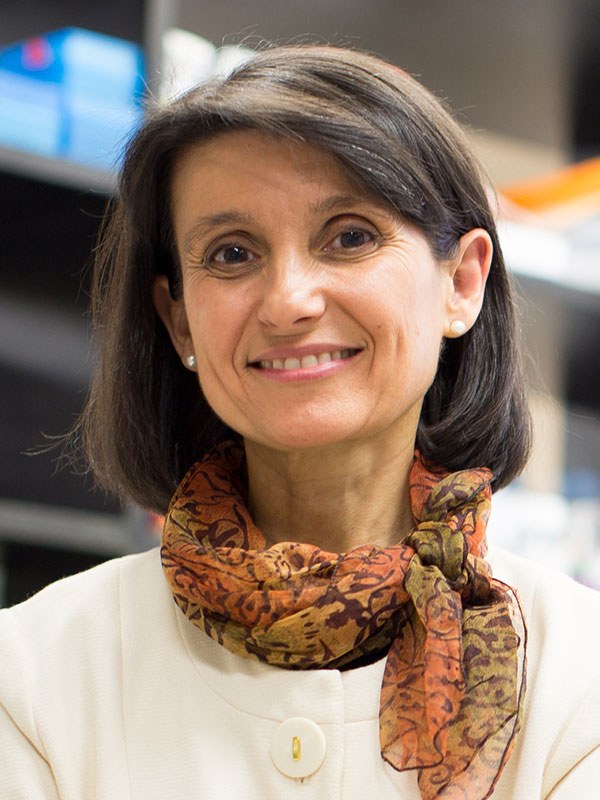Einstein Experts
Ana Maria Cuervo, Ph.D., M.D.

Professor, Developmental and Molecular Biology
Professor, Anatomy and Structural Biology
Co-Director, Institute for Aging Research
Robert and Renée Belfer Chair for the Study of Neurodegenerative Diseases
Molecular BiologyAgingAutophagy
Cellular biologyDr. Cuervo is considered a leader in the field of autophagy— the process by which cells remove and recycle their waste. The Barcelona, Spain native is also an expert on the cellular biology of aging. Dr. Cuervo has been quoted in numerous publications, including The New York Times, Nature, Science, Scientific American, and The Scientist.
Dr. Cuervo is co-editor-in-chief of Aging Cell and has served on various National Institutes of Health (NIH) advisory panels and study sections, the National Institute on Aging’s Council, and the NIH Council of Councils. She is currently a member of the Advisory Committee to the NIH deputy director, and chair of the NIA Board of Scientific Counselors. She is an elected member of the National Academy of Sciences and of the American Academy of Arts and Sciences.
Dr. Cuervo’s work focuses on the causes of age-related diseases including degenerative disorders such as Alzheimer’s disease and Parkinson’s disease, metabolic conditions such as diabetes, and cardiovascular disorders. Her goal is to develop therapies that will restore normal cellular housekeeping and thus prevent the accumulation of toxic protein byproducts and the death of affected cells in age-related disorders. Dr. Cuervo was named to the Highly Cited Researchers List (ranking of top 1% cited researchers) since 2018.
Additional Areas of Expertise
Cancer, Cell biology, Huntingtons disease , Metabolism, Parkinsons disease
Highlighted Media Coverage
United Press International (UPI)
Einstein Multimedia
Experimental Drug Shows Potential Against Alzheimer’s Disease
Cellular Pollution | Autophagy Failure in Aging, Alzheimer’s, Diabetes, and Cancer
Science Talk: Scientists Identify ‘Clean-Up’ Snafu that Kills Brain Cells in Parkinson’s Disease
Science Talk: Faulty Clean-up Process May Be Key Event in Huntington's Disease



